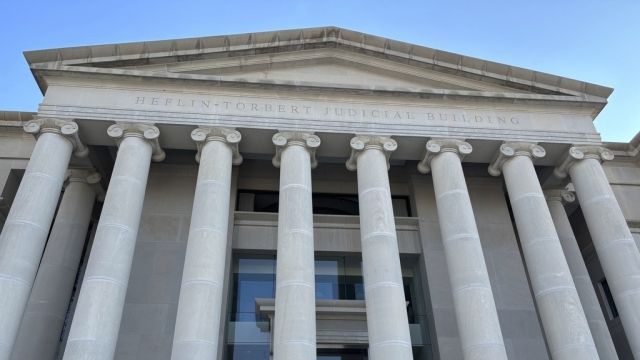Couples struggling with infertility are asking questions after Alabama’s Supreme Court ruled frozen embryos should be considered children under state law, prompting at least two fertility clinics in the state to pause in vitro fertilization treatments.
The ruling suggests embryos should have the same protections that children do under the state’s Wrongful Death of a Minor Act, and it would make it a crime to destroy unused embryos.
Reproductive advocacy groups warn the decision could have broader implications for couples trying to build a family, especially for military families constantly on the move.
Julie Eshelman and her husband conceived their 2-year-old daughter through IVF and currently have frozen embryos stored where they live now in Pennsylvania — but being a military family, there’s always the potential to be redeployed, including to Alabama.
“I'm still trying to process all of this myself, and what that means for my family and for families across the country,” said Eshelman.
SEE MORE: Alabama court cites Bible while ruling embryos are children
She says they want to keep building their family but are now worried that rulings like this could spread to other states.
“I was pretty shocked, and immediately, like just reading the headline, I mean, I knew the implications,” said Eshelman.
Barbara Collura, the CEO of RESOLVE: The National Infertility Association, said the ruling will have devastating consequences.
"Now the court is saying that that's a person. Can we freeze embryos? I don't know. Can we freeze a person? What will happen to all of those embryos?" said Collura.
The University of Alabama at Birmingham became the first to pause certain IVF services after the court's ruling to evaluate the potential risks to its physicians and patients.
Legal experts say the decision will mean higher costs for couples seeking fertility treatments in Alabama, by forcing them to store frozen embryos in a different state.
It could also mean patients might have to travel out of state to get the care they need.
“I think my biggest concern is that these politicians and lawmakers aren't fully understanding how personhood legislation could impact lives,” said Eshelman.
The primary worry for patients nationwide is the potential for other conservative states to adopt Alabama's ruling, adding more obstacles to an already challenging and expensive fertility treatment journey.
Trending stories at Scrippsnews.com



